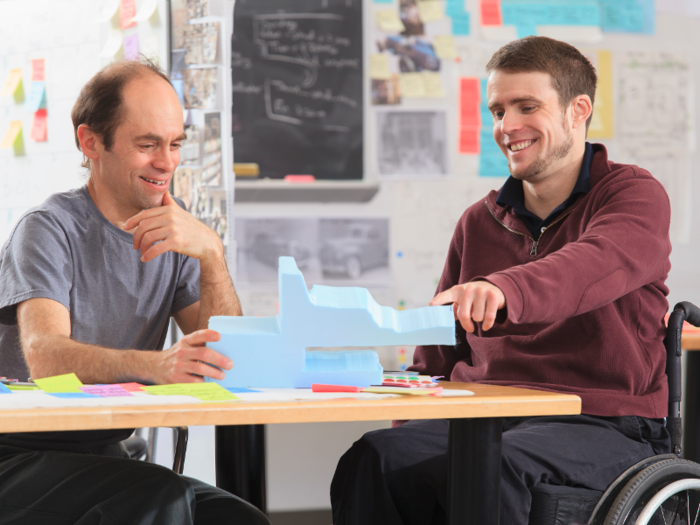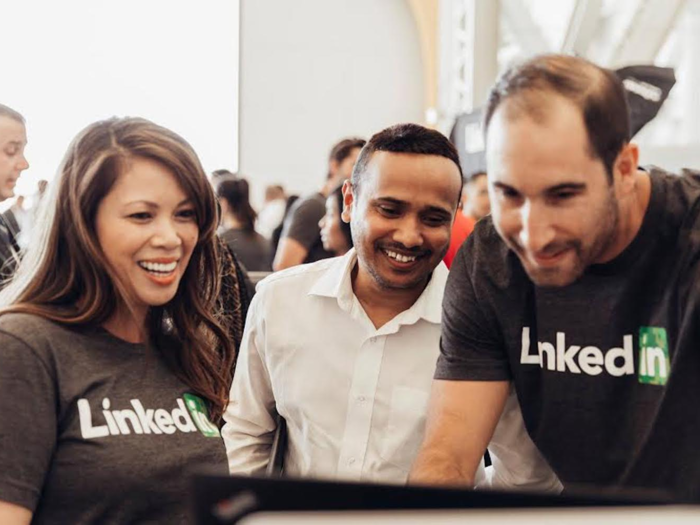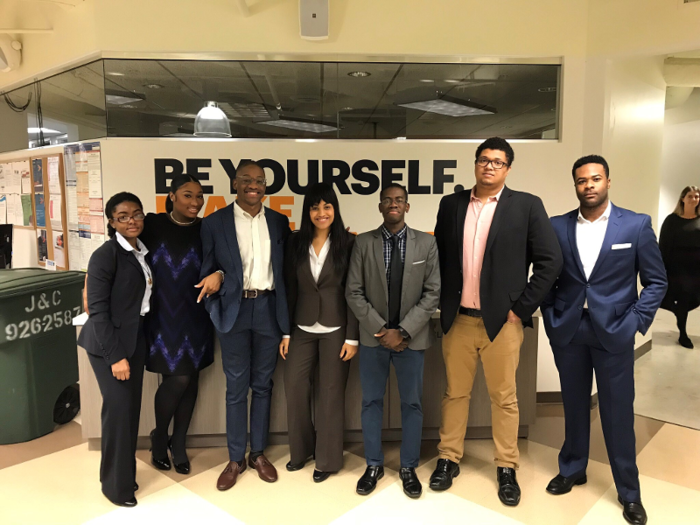- Home
- slideshows
- miscellaneous
- The days of coffee-grabbing internships are over. Here's how fellows and apprentices are changing the way we train our youngest workers.
The days of coffee-grabbing internships are over. Here's how fellows and apprentices are changing the way we train our youngest workers.
Because they are low-paying, internships tend to cater more to privileged students.

To help diversify their entry-level hiring pool, companies are creating additional programs targeted at nontraditional talent.

Internships and fellowships tend to vary depending on the company, but in general, internships last for a few short summer months. Fellowships, meanwhile, can last for half a year, Hora said.
Many companies use fellowships and other nontraditional internships to help recruit and train diverse employees.
Semiconductor company Qualcomm, for instance, launched a program this year directed at individuals with autism or on the spectrum. People with disabilities have among the highest unemployment rates in the country, and advocates say nearly half of 25-year-olds with autism have never held a paying job.
Participants of Qualcomm's program have slightly different responsibilities than traditional interns, senior talent acquisition specialist Matt Harris told Business Insider. They receive more hands-on mentorship than traditional interns, for instance.
Harris helped start the pilot program in April of this year with the goal of helping an underserved population, and get a more diverse staff than traditionally would come from the internship program. Qualcomm's "nontraditional" interns worked from April to September, and those with good performance were hired.
"We support diversity and inclusion from a hiring perspective here at Qualcomm," Harris told Business Insider. "I think we all have gone through an interview process before where we take our résumé and we turn it into the best version of it. Folks on the spectrum have a more difficult time with that than their neurotypical counterparts."
Internships aren’t just flawed because they alienate diverse talent — sometimes they don’t even prepare students for their jobs.

In his research, Hora found that some internship programs can last just a few days, don't have proper mentorship in place, and don't have participants do more than make photocopies — nothing that prepares students for an actual job.
Plus, not all internships are equally as useful.
Healthcare internships, for instance, have lengthy screening processes to ensure young people can interact with patients with proper supervision. In turn, hospital interns get useful mentorship and guidance.
Students with history and English degrees sometimes apply to companies or startups that don't have the same level of screening. Hora said he knew of instances where a surprised student arrived for an internship at a company inside someone's garage.
"There's a concern that [mandatory internships] are going to be pushing students to employers that are unscreened," Hora said. "The scary ones that I hear about are in theater, media, and communications. I think that in some of those areas, there's less oversight and less regulations."
While the companies Business Insider spoke with clarified they are not letting go of their "traditional" internship programs, they are using fellowships and apprenticeships to supplement their existing entry-level recruiting.

LinkedIn also has an apprenticeship program for people without formal technical training looking to restart their careers.
The program, called REACH, is meant to work in tandem with the internship program to bring in entry-level engineering talent.
The REACH program launched in April 2017 with the purpose of attracting top talent that may not have gone the traditional "college to engineering" job route, LinkedIn's director of engineering Shalini Agarwal told Business Insider. Many top tech companies — like Apple, Google, and Netflix — have complained of a "skills gap," where not enough college graduates are prepared for the most in-demand tech jobs.
"We believe that the mismatch between talent supply and demand for engineers can be addressed in a sustainable manner by changing the way we identify, recruit, and develop talent," Agarwal said.
Alumni of the program include a former fitness trainer, a former dietician, and a former elementary school teacher, a LinkedIn spokesperson said.
Sixty-five mid-career professionals have entered the REACH program so far, and the current class has 36 people in the program. Of all the REACH graduates, 21 are in engineering roles either at LinkedIn or competitive companies.
Traditional hiring practices don't easily allow people without technical training looking to break into the tech industry, Agarwal said. The REACH program broadens the applicant pool for more diverse candidates.
"The REACH apprenticeship program is meant to serve as an 'and' to our recruitment efforts," Agarwal said in an email. "It's a way for us to open the talent pipeline to offer opportunities to individuals from nontraditional technical backgrounds."
Some companies are using apprenticeships to better prepare entry-level talent.

Apprenticeships focus on long-term skills training to prepare candidates to get hired for their particular job. In Switzerland, 70% of all students begin three-year apprenticeships at age 15.
Accenture launched its apprenticeship program three years ago. While the consultancy's internship program recruits four-year college students, the apprenticeship mostly selects "nontraditional" candidates who went to two-year schools or did not complete college.
Usami, the 2018 Accenture apprentice, said while she never had an internship, she feels the apprenticeship differs from other programs for its focus on around-the-clock, long-term training.
The first six weeks of her program were used for just training, where participants learned Java, quality assurance, and software development. She also honed in soft skills like public speaking and coordinating across different teams.
Beyond landing a full-time job at Accenture, Usami said she made new friends at the program — and they even maintain a group chat a year after saying goodbye.
"To this day I can reach out to my buddy or my executive mentor, and I still get to learn new things," she said.
Popular Right Now
Popular Keywords
Advertisement